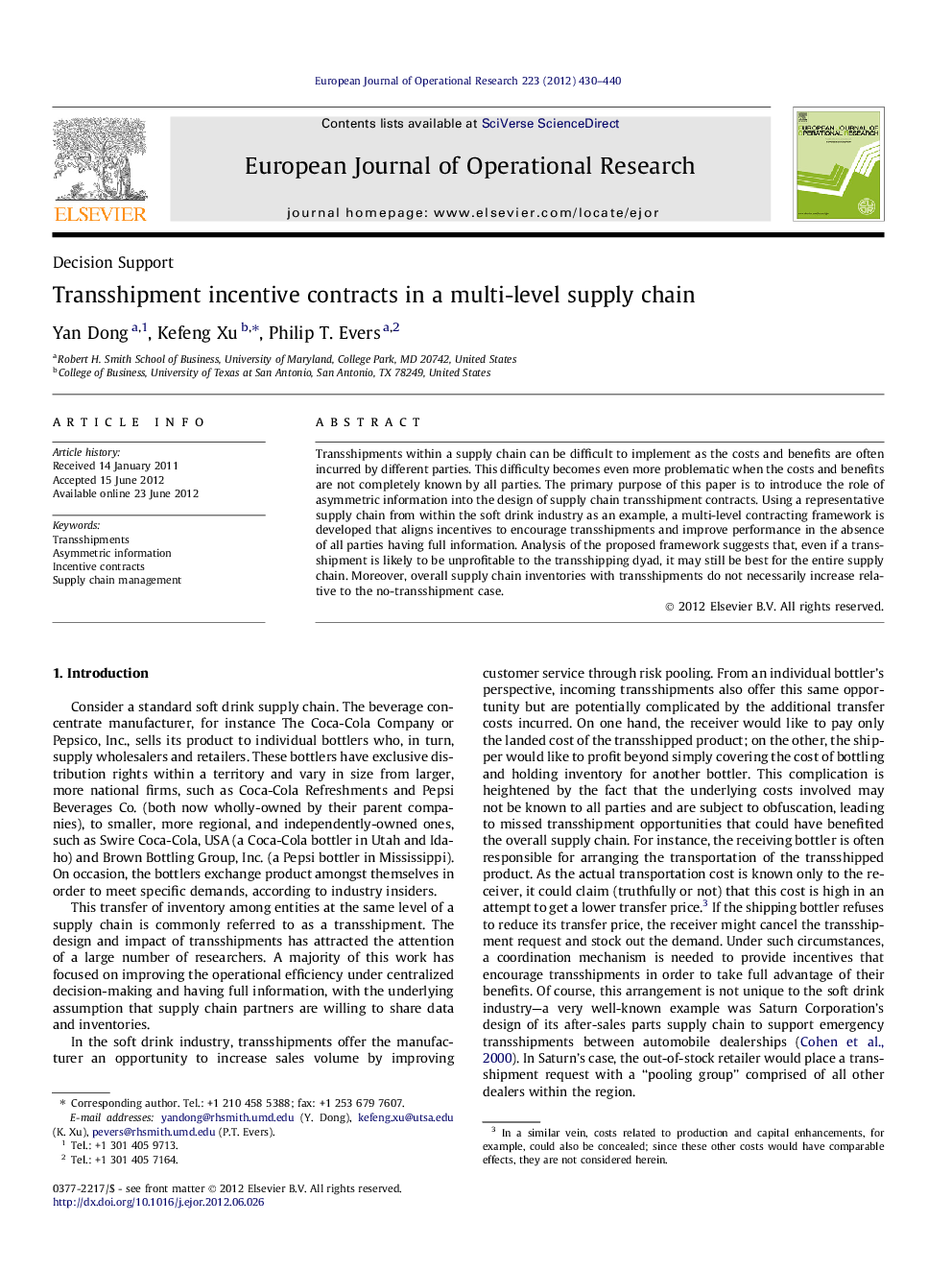| Article ID | Journal | Published Year | Pages | File Type |
|---|---|---|---|---|
| 480250 | European Journal of Operational Research | 2012 | 11 Pages |
Transshipments within a supply chain can be difficult to implement as the costs and benefits are often incurred by different parties. This difficulty becomes even more problematic when the costs and benefits are not completely known by all parties. The primary purpose of this paper is to introduce the role of asymmetric information into the design of supply chain transshipment contracts. Using a representative supply chain from within the soft drink industry as an example, a multi-level contracting framework is developed that aligns incentives to encourage transshipments and improve performance in the absence of all parties having full information. Analysis of the proposed framework suggests that, even if a transshipment is likely to be unprofitable to the transshipping dyad, it may still be best for the entire supply chain. Moreover, overall supply chain inventories with transshipments do not necessarily increase relative to the no-transshipment case.
► This paper investigates incentive contracting issues in supply chain transshipment management. ► It incorporates asymmetric transshipment cost information under local decision-making. ► Though transshipments need not benefit the immediate dyad, they can still benefit the overall supply chain. ► Transshipments may not increase the order quantity or overall inventory level. ► Their effect on profits also varies, but it is usually positive for the supply chain and each party.
